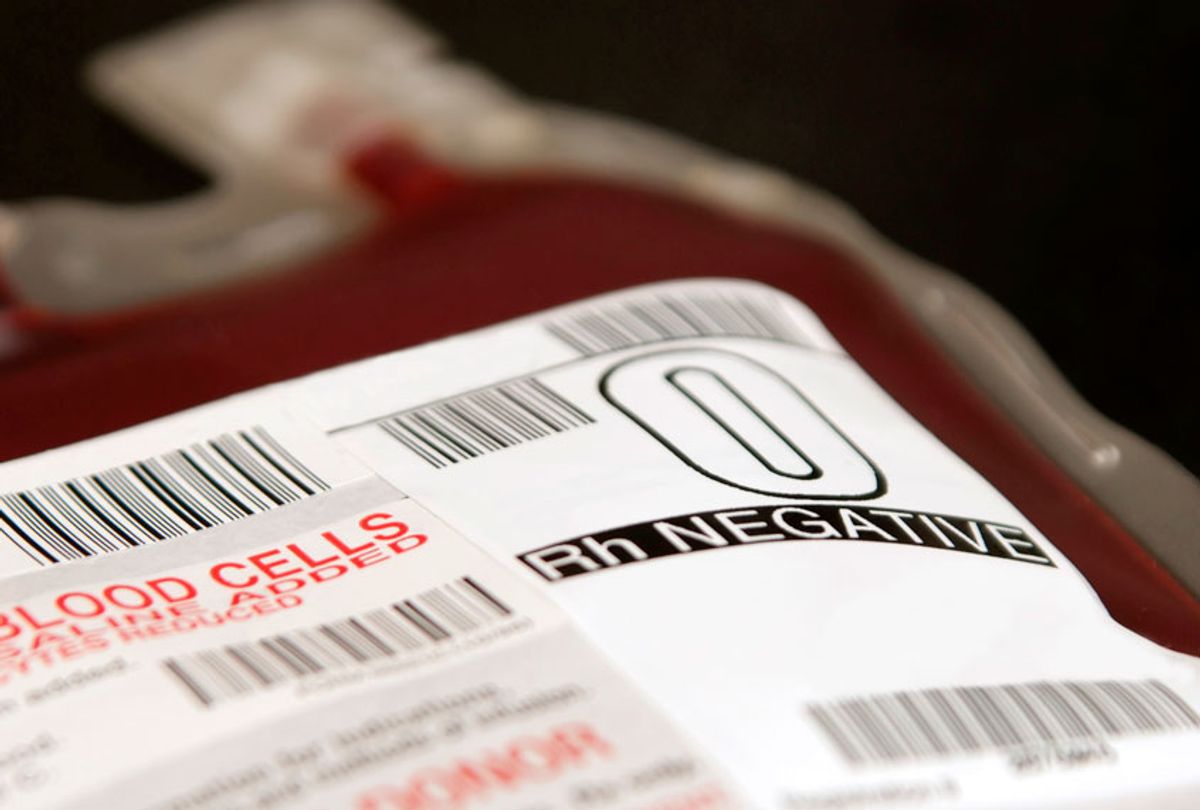In HBO’s tech industry send-up “Silicon Valley,” tech billionaire Gavin Belson is accompanied by a “blood boy,” a younger man he keeps on hand to infuse him with young blood to keep him sprightly. This vampiric medical idea — that being infused with young people's blood can help slow aging — is not a fabrication from creative TV writers, but rather inspired by trends in the tech world — including a real-life startup in Monterey, called Ambrosia, which offers transfusions of human plasma harvested uniquely from young adults. Ambrosia claims these infusions will help promote longevity for those who can afford their expensive service.
Unfortunately for its patrons, opportunities for the technorati to suck the blood of the young may have just dried up. On February 19, the U.S. Food and Drug Administration (FDA) issued a statement cautioning consumers about receiving plasma infusions from young donors in order to treat aging, Alzheimer’s disease, heart disease and more.
“We have significant public health concerns about the promotion and use of plasma for these purposes,” the joint statement Statement from FDA Commissioner Scott Gottlieb, M.D., and Director of FDA’s Center for Biologics Evaluation and Research Peter Marks, M.D., Ph.D., said. “There is no proven clinical benefit of infusion of plasma from young donors to cure, mitigate, treat, or prevent these conditions, and there are risks associated with the use of any plasma product.”
The statement added that the federal agency is concerned that consumers “are being preyed upon by unscrupulous actors touting treatments of plasma from young donors as cures and remedies.”
“As a general matter, we will consider taking regulatory and enforcement actions against companies that abuse the trust of patients and endanger their health with uncontrolled manufacturing conditions or by promoting so-called ‘treatments’ that haven’t been proven safe or effective for any use,” the statement continued.
Ambrosia announced it was ending all treatments quickly after the announcement; yet it has been nearly three years since the company began clinical trials, scouting locations, and accepting payments for procedures via PayPal. SFGate reported that Ambrosia customers could already buy 1 liter of young blood for $8,000, or 2 liters for $12,000.
Ambrosia's ceasing of operations comes about a year after a separate mini-scandal in which the company’s CEO, Jesse Karmazin, made pseudoscientific claims about the company's crowd-funded clinical trial. “[Young blood infusions] could help improve things such as appearance or diabetes or heart function or memory. These are all the aspects of ageing that have a common cause,” he told the British newspaper The Times in 2017. “I’m not really in the camp of saying this will provide immortality but I think it comes pretty close, essentially.”
As of last year, Ambrosia had infused nearly 150 people with other people's blood, according to SFGate. Notably, infamous investor and anti-democracy libertarian Peter Thiel was interested in the proposition of siphoning young people's blood to slow aging.
The FDA’s warning to consumers comes at a pivotal moment for Silicon Valley, as various government agencies are more actively regulating the tech and biotech worlds. Congressional Democrats are currently eyeing legislation to implement online privacy protections. The Federal Trade Commission announced a task force to review mergers and acquisitions of big tech companies. Likewise, the spectacular fall of biotech company Theranos was said to set a precedent for an industry that is known to raise money on its ambitious ideas, even if they have yet to be proven.
“The Theranos story is an important lesson for Silicon Valley,” Jina Choi, director of the SEC’s San Francisco Regional Office, said in a statement, when news about the former CEO's indictment broke. “Innovators who seek to revolutionize and disrupt an industry must tell investors the truth about what their technology can do today, not just what they hope it might do someday.”
But does that apply to comparable biotech startups like Ambrosia? Since technically the Food and Drug Administration approves blood transfusions, the startup’s approach was considered to be an “off-label treatment.” The line is blurry when it comes to health and wellness in Silicon Valley; for instance, supplements that have not been FDA-approved are able to be sold.
“Because we let people sell a wide range of ‘health related’ stuff without any proof of efficacy (or safety). . . . Part of that is because if they qualify as dietary supplements, FDA has very little power over them,” Henry Greely, Director at the Center for Law and the Biosciences at Stanford University, told Salon in an email. “What brought Ambrosia down is that blood products all [fall] inside ‘real’ FDA jurisdiction (as biological products, not as barely regulated dietary supplements) and so need to be shown to be safe and effective.”
The FDA directed Salon’s request for comment to its official statement. The Federal Trade Commission told Salon it does not comment on a particular company’s business practices, unless the agency has investigated it and is filing a complaint.
Irina Conboy of the Department of Bioengineering at UC Berkeley, who has published a study on heterochronic parabiosis, told Salon in an email the FDA made the right call.
“In my opinion, FDA did the right thing, as the service for fee that Ambrosia was providing never had a strong scientific justification; and injecting somebody else — genetically unmatched bodily fluids into a person — is likely to have deleterious side-effects,” she said.



Shares